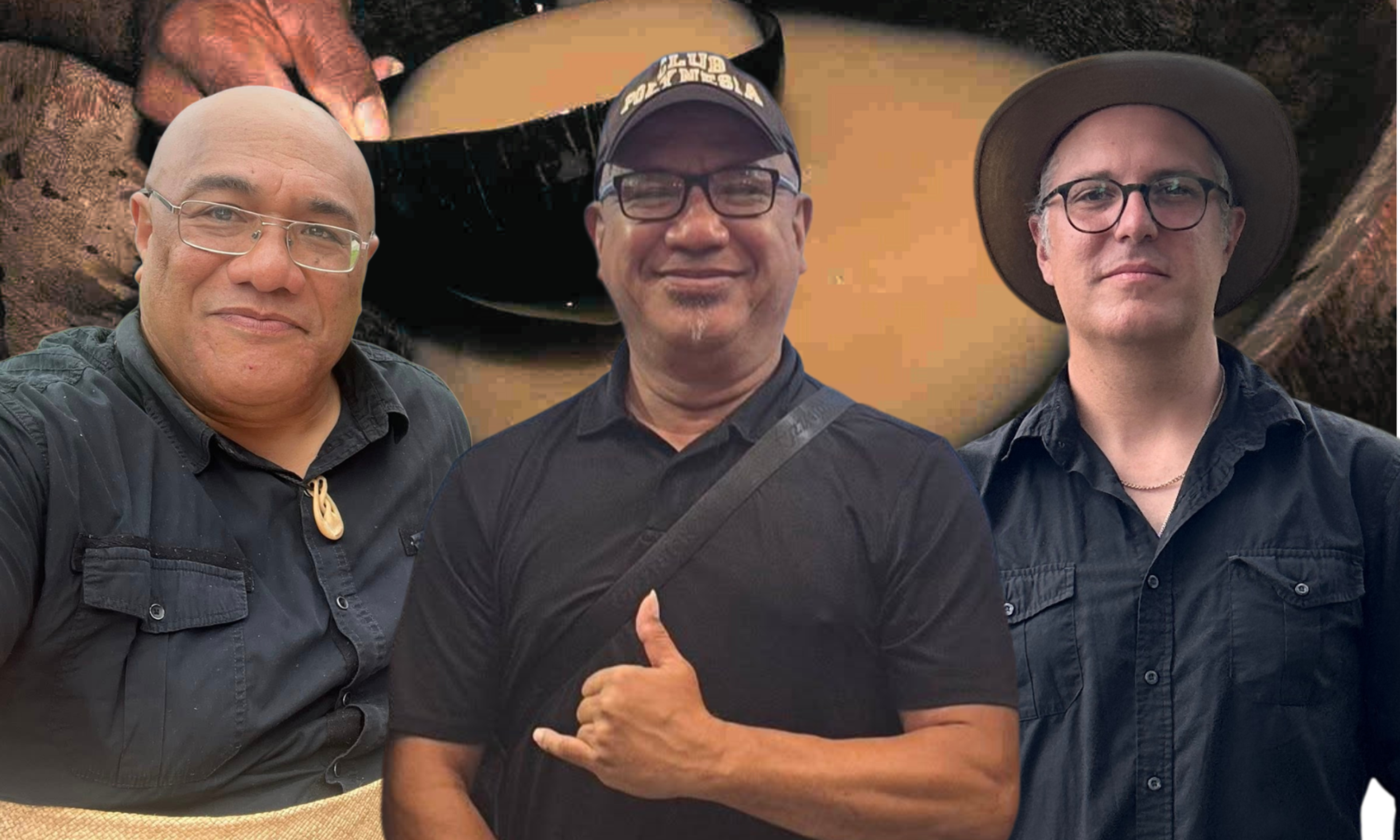
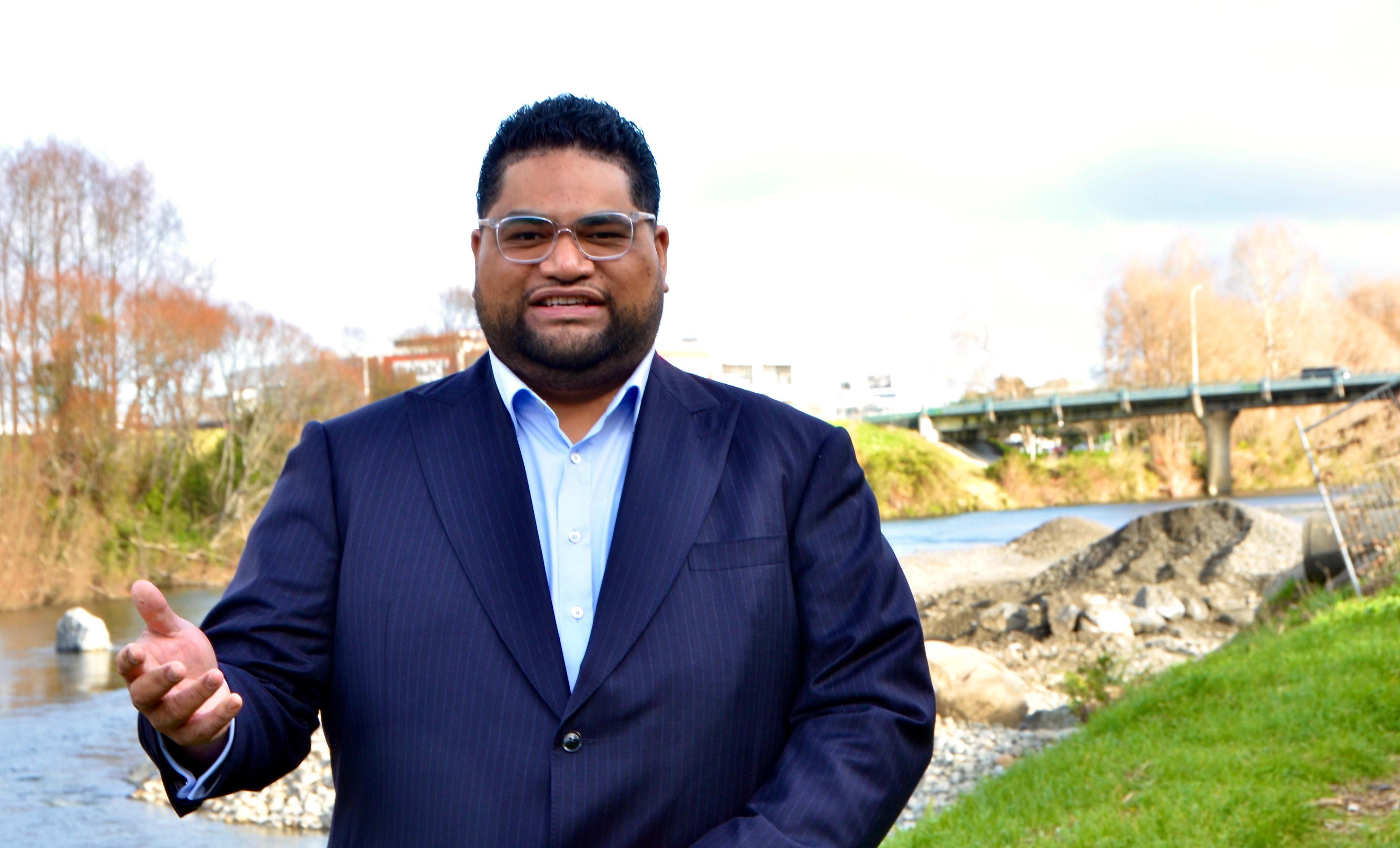
Gabriel Tupou announces his bid for Greater Wellington Regional Council.
Photo/supplied
Gabriel Tupou pushes for Pacific voices in regional politics
Lower Hutt’s first Tongan councillor is advocating for climate resilience and community wellbeing amid rising living costs.


Late heartbreak for the Auckland Blues against the ACT Brumbies

From Kelston to Canterbury: Pasifika engineering student awarded scholarship

From rugby to MMA: Howard Sililoto set to debut at the Stealth Fighters League

Pacific leaders back NZ kava reforms but warn of risks for smaller businesses in Tonga

Late heartbreak for the Auckland Blues against the ACT Brumbies

From Kelston to Canterbury: Pasifika engineering student awarded scholarship

From rugby to MMA: Howard Sililoto set to debut at the Stealth Fighters League
Gabriel Tupou, Lower Hutt’s first Tongan councillor, aims to break another barrier by becoming elected to the Greater Wellington Regional Council.
He is calling for stronger Pasifika and Māori voices in regional decisions concerning climate resilience, housing, and community well-being.
Tupous urges Pacific voters to support candidates from their communities while addressing the racism, threats, and isolation that Pacific candidates face.
With almost nine years of experience in local government, Tupou says it’s important for regional leadership to accurately reflect the communities it serves, especially as families face rising living costs, housing pressures, and climate challenges.
“My time as a Community Representative on Greater Wellington’s Whaitua (Water Catchment) Committee, Chair of the Wainuiomata Community Board, and as a Hutt City Councillor has given me the experience, insights and relationships to serve our region,” Tupou says.
“I hope to add value to a diverse and talented group of strategic leaders who also care for the health and prosperity of our region.”
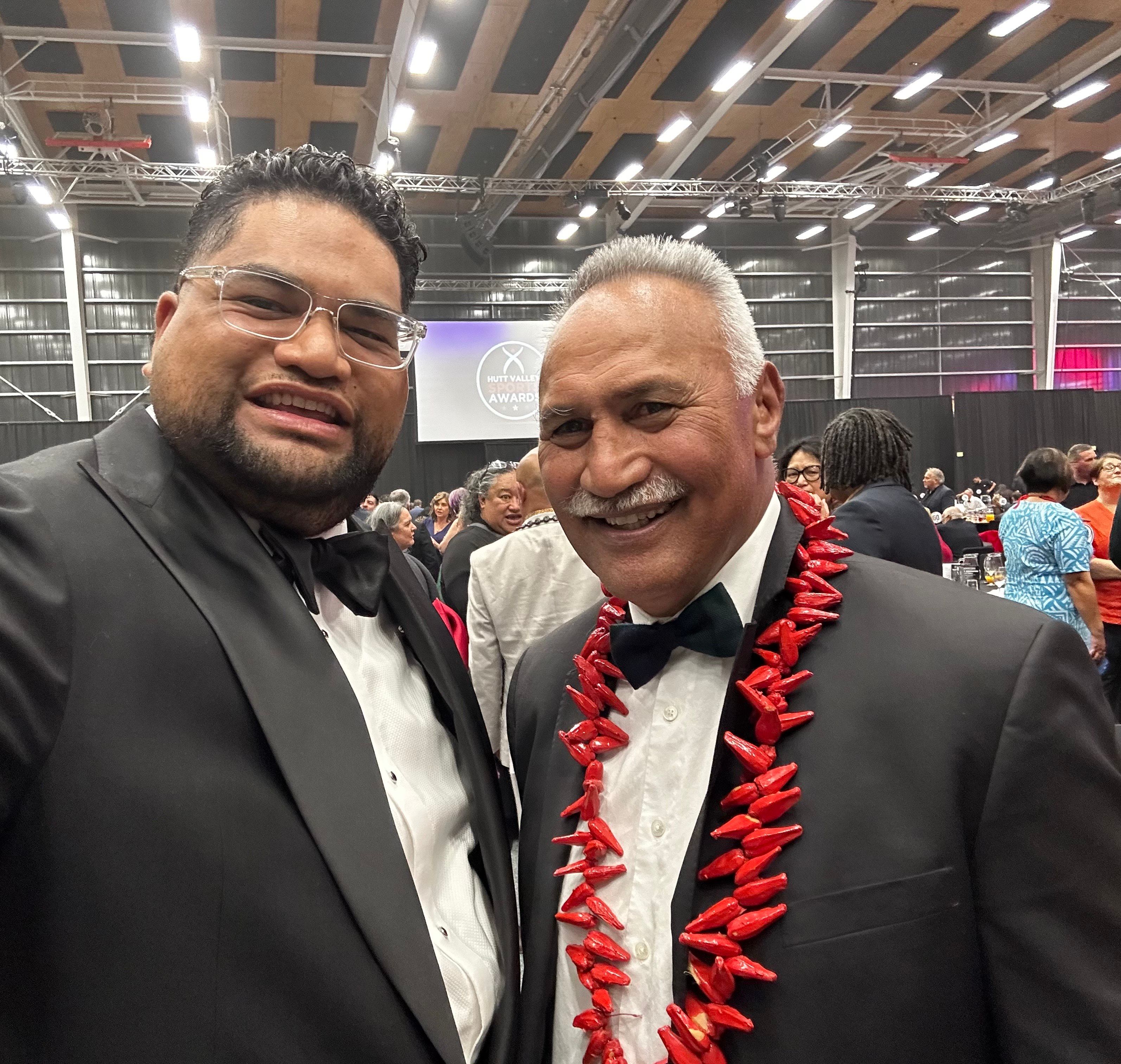
Gabriel Tupou and Fauono Ken Laban, championing diverse leadership. Photo/supplied.
Support for Pacific leadership
Tupou’s campaign is backed by current GWRC Councillor Fauono Ken Laban, who is also running for Mayor of Lower Hutt. Laban says Tupou has the community’s trust and proven track record.
“I have known and supported Gabriel for many years, including during his time on the Community Board and Hutt City Council,” Laban says. “He is a competent and talented governor with huge potential in public service. He would be a tremendous advocate for our community on the GWRC, and I wish him well.”
If Laban is elected as the first Pasifika Mayor for Lower Hutt, Tupou hopes to maintain strong Pacific representation at the regional level.
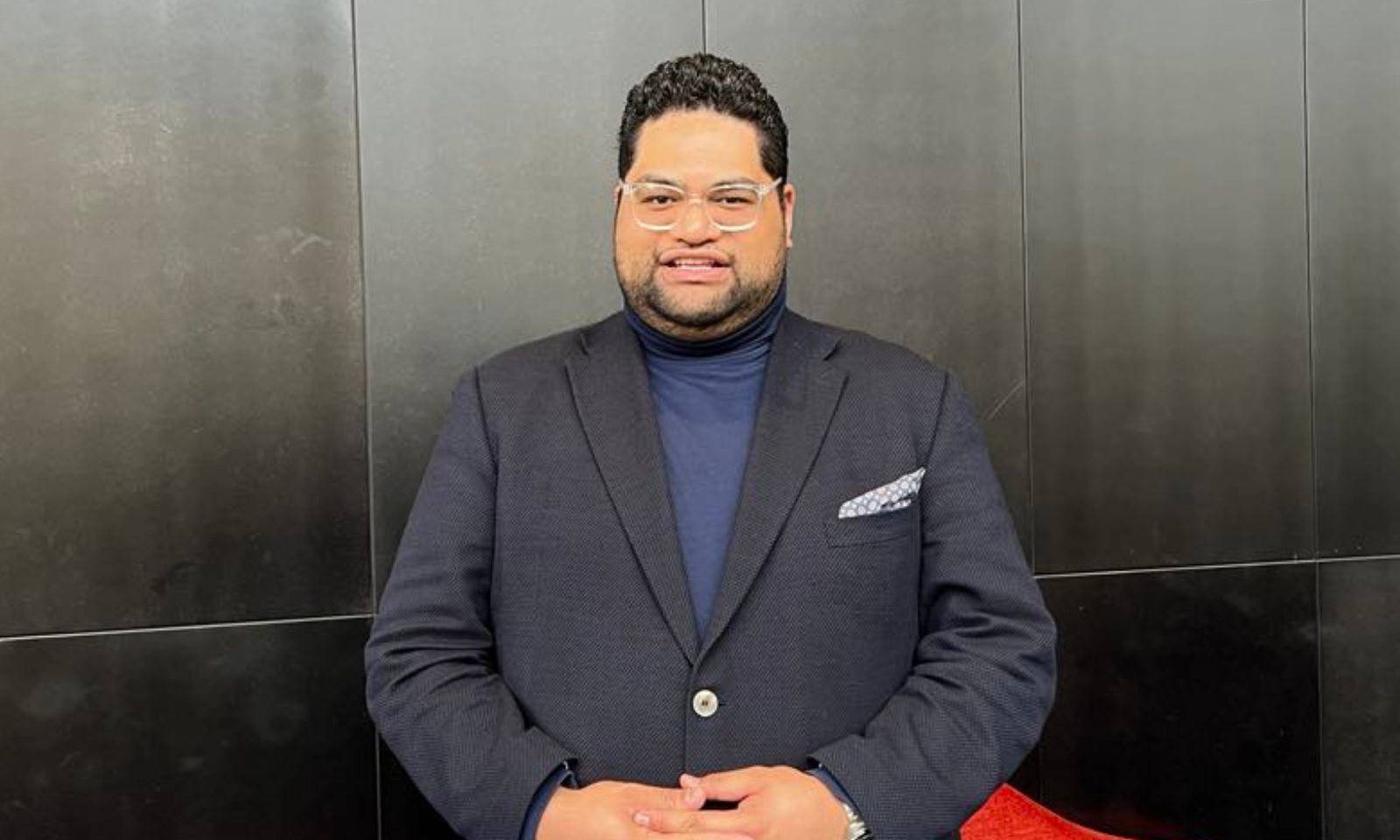
Hutt City Councillor Gabriel Tupou. Photo/File
“With Ken standing as Mayor and hopefully becoming the first Pasifika Mayor, I think we’re well represented locally, but we need that same diversity at the regional level,” Tupou says.
Commitment to clean water, climate resilience, and local voice
Born in Auckland and spending his childhood in Wainuiomata, Tupou views the fight for healthy waterways and flood protection as a deeply personal mission. He aims to build on his previous work and dedication to local communities.
“I’m standing for a Regional Council that takes action on Te Mana o te Wai, water conservation, delivers reliable public transport, and builds up our resilience for a growing population who face the daily challenges of a housing and cost-of-living crisis,” he says.
His key priorities include major initiatives such as RiverLink in central Hutt and Puketaha, a proposed ecological bird sanctuary in Wainuiomata that would be 13 times the size of Zealandia. Tupou believes these projects show the need for strong local voices and effective representation in regional decision-making.
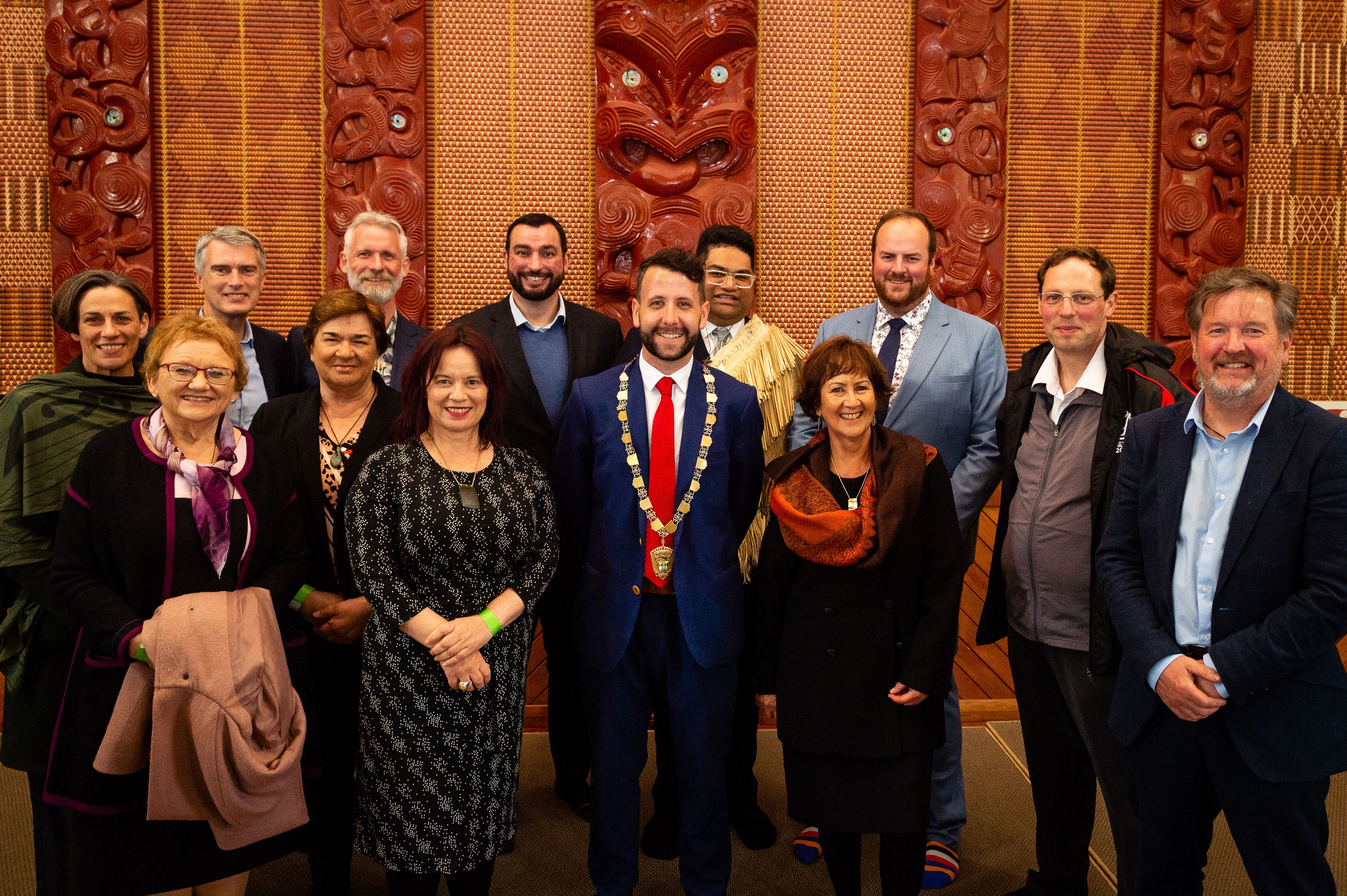
Hutt City Councillors with iwi representative and appointed member, including Gabriel Tupou, currently the only Pasifika representative. Photo/Hutt City Council
“I will bring the voice of Te Awakairangi ki Tai – Lower Hutt to the regional table,” Tupou says. “Whether it’s flood protection, oversight of our regional parks or better public transport options, I’m ready to listen, engage and deliver.”
GWRC Councillor Quentin Duthie also backs Tupou’s environmental focus. “Gabriel is a strong advocate for the Lower Hutt community and environment. A vote for Gabriel is a vote for the health of our water, land and people.”
Confronting racism and building trust
Tupou acknowledges the challenges that Pasifika and Māori candidates often face in local government.
“It’s not an easy road to put ourselves forward to public scrutiny and stand up for office, because politics is not for the faint-hearted. I’ve experienced, alongside colleagues, racism and hatred - including being bombarded with emails by hundreds of Hobson’s Pledge supporters when we were considering establishing a Māori ward. You have to have a thick skin, but not every day is an easy day.”
He says Pacific voters sometimes feel local government “just talks but doesn’t deliver”. But he points to real outcomes like improvements to the Wainuiomata town centre, support for healthy homes initiatives, and upgrades to water infrastructure.
“The proof is in delivery, not promises. Whether it’s flood protection, oversight of our regional parks or better public transport, I’m ready to listen, engage and deliver,” Tupou says.
When discussing rebuilding trust with voters, Tupou says, “Look at our track record in the community. Don’t trust what people say. Trust is earned through action and delivery. It’s by their fruits we shall know the good candidates, the outcomes they have achieved for our city and region.”
A call to vote
With potential local government reforms ahead, Tupou says it is more important than ever for Pasifika communities to participate in the elections.
“We can talk about Pasifika representation until kingdom come, but it means nothing if we don’t show up to vote for our own people. That’s how we build trust and real power.”

Pasifika representation at the 2024 LGNZ Conference. From left: Josiah Teokotai, Kayla Christansen, Lesa Bingley, and Gabriel Tupou. Photo/PMN News/Mary Afemata
Tupou lives in Wainuiomata and is a classical tenor, a former public servant, and a manager at the Sisters of Compassion charity. He also serves as a trustee for the Duke of Edinburgh’s Hillary Award and the Manaaki Ability Trust and volunteers with the Māori Wardens.
Nominations for the 2025 local elections are now open, with voting scheduled for October.
LDR is local body journalism co-funded by RNZ and NZ On Air.
